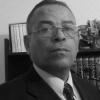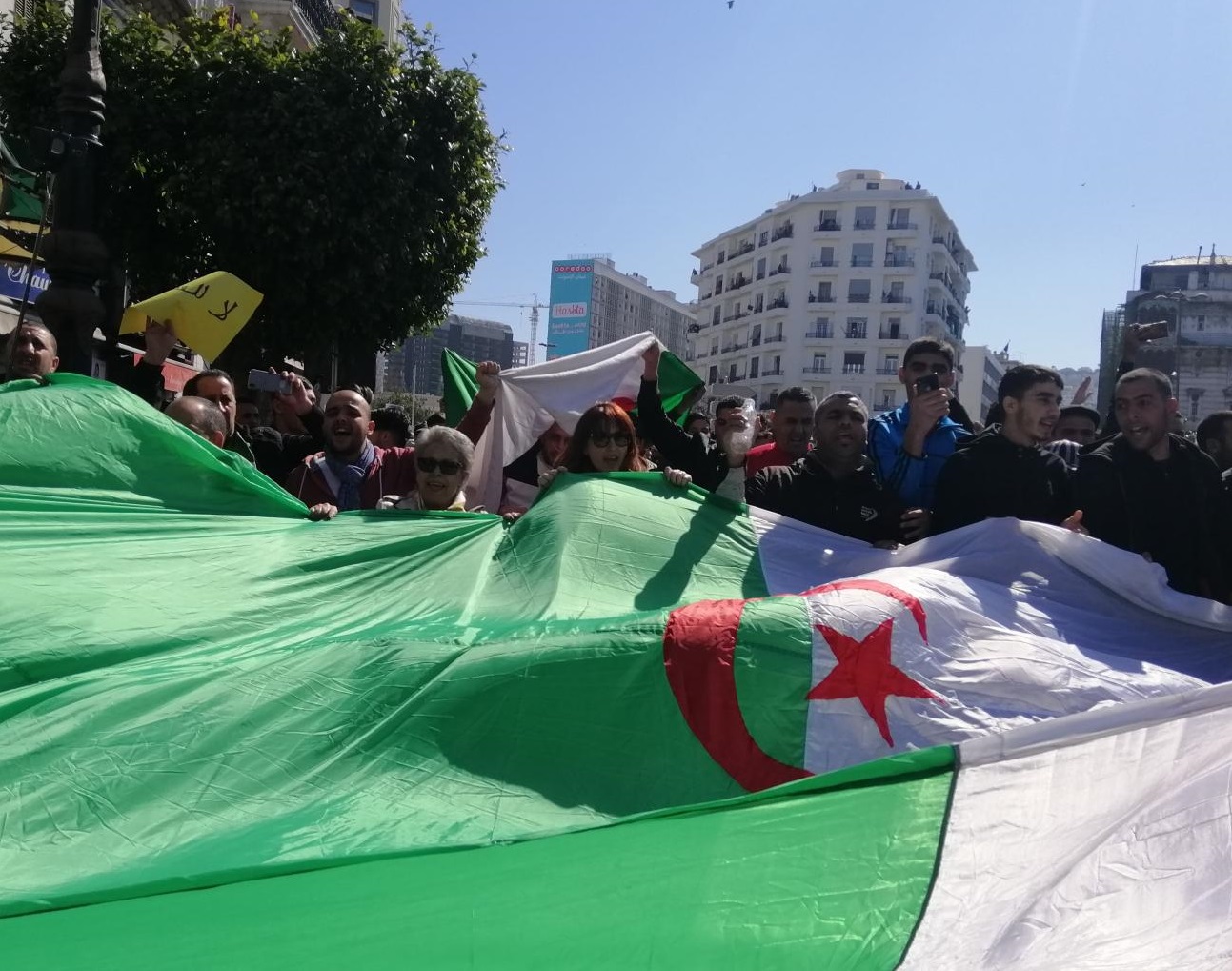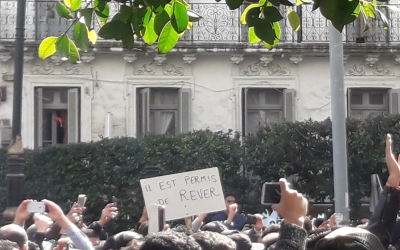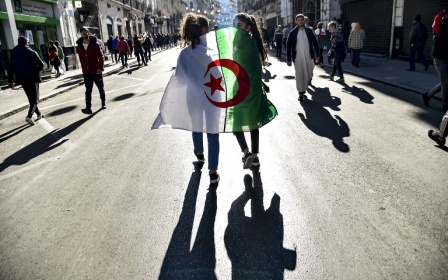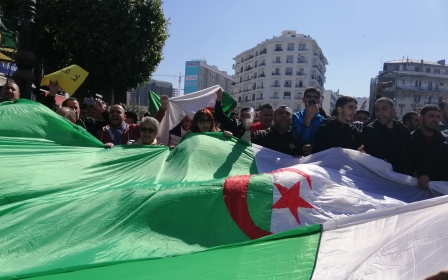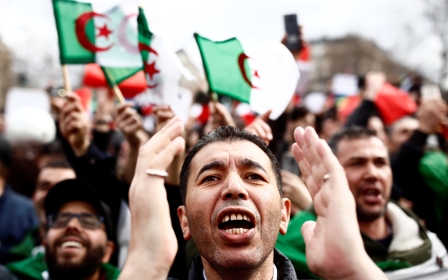Bouteflika's fifth term is already over
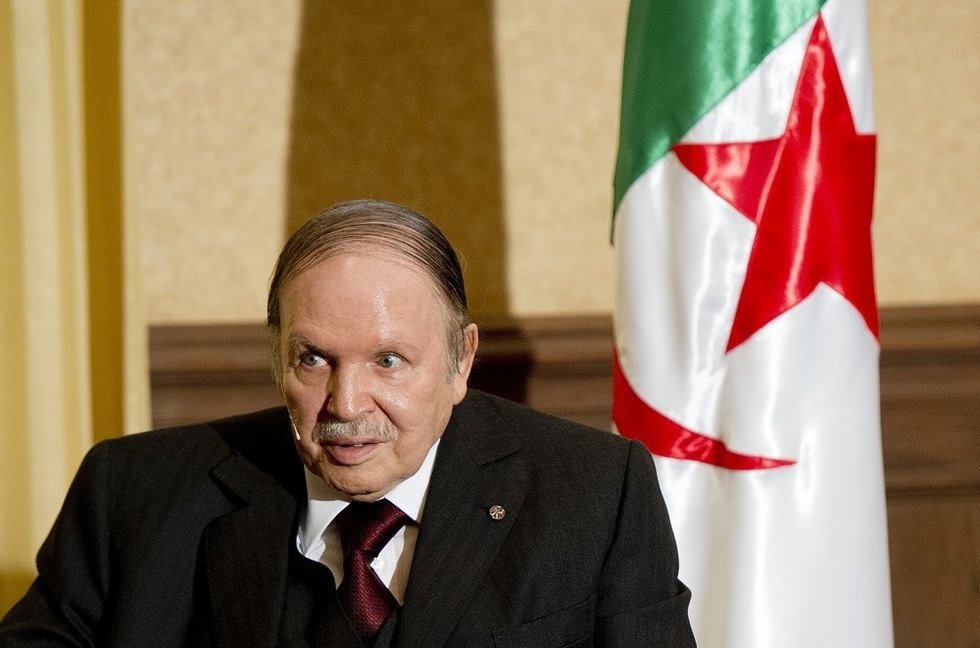
As Algeria experiences its third weekend of protests against the potential for a fifth term for President Abdelaziz Bouteflika, it is becoming increasingly clear that this is a political impossibility.
Each day and each hour marks another blow to what was supposed to be a lifetime presidency for Bouteflika, 82, who has been hospitalised in Switzerland since 24 February and returned home on Sunday night.
This week, two organisations that have traditionally formed part of the country’s power structure defected to the opposition.
The National Organisation of Mujahideen (NOM), comprising Algerian independence war veterans, held Bouteflika - who has been in power for two decades - responsible for the current wave of unrest that has gripped the country since 22 February. The NOM denounced "an unnatural alliance between influential members of power" and people who "opened the doors to take control of the public money".
Declining support
Support for demonstrators has also come from former members of the Ministry of Armament and General Liaisons (MALG), the structure that gave birth to Algeria’s military intelligence. In a statement, the organisation welcomed the "irresistible momentum" of the demonstrations and denounced "manoeuvres to perpetuate a system that has reached its limits and risks leading the country into serious peril".
These two defections marked a key moment towards discrediting the upcoming presidential election, scheduled for 18 April. As the former president of the Rally for Culture and Democracy, Said Sadi, noted: "The fifth term is over; it is the events that follow that we have to consider now.”
'The street has discovered its strength, and it does not want to give in'
Algeria has reached this point because of a variety of factors: first and foremost, the wave of street protests that began last month, fuelled by anonymous calls on social networks. Tens of thousands of people marched in the country’s main cities, with protests swelling further last weekend.
The street has discovered its strength, and it does not want to give in. These peaceful, organised protests have revealed an unexpected face of Algerian society.
Fit to lead?
Faced with this street eruption, potential presidential candidates have found a way out of the deadlock they were in. They knew they had no chance in a poll where Bouteflika was running and was sure to be reelected, thanks to the weight of the administration and the crumbling of the opposition. So, they took this opportunity to get closer to the street.
Ali Benflis, the former head of state who twice ran against Bouteflika, started the process of filing nomination papers this time around, before withdrawing. Abderrazak Makri, president of Algerian Society for Peace Movement, also withdrew, as did the Front El Moustakbel’s Abdelaziz Belaid.
For his part, Bouteflika submitted his nomination papers on 3 March via his campaign manager. The president’s absence has raised questions about the legality of the proceedings. Beyond procedure, however, the fundamental question remains: Is Bouteflika fit to be a candidate and to lead the country, despite his poor state of health?
Officially, Bouteflika travelled to Switzerland last month for a “routine check-up”. Usually, these visits last only a few days. This time, it has been much longer, and the Swiss press has reported that he is in a dire state of health.
Seriously diminished since his stroke in April 2013 - unable to move autonomously or to speak audibly - Bouteflika requires constant monitoring for his medical issues, according to the Swiss press.
For opponents, this should be enough to invalidate his candidacy; but Bouteflika loyalist Tayeb Belaiz was recently tapped to head the constitutional council that approves candidacies. The council must publish the final list of candidates by 14 March, which will be a decisive moment for the country’s future.
Bouteflika isolated
At the same time, Bouteflika’s opponents have made moves to strip away the support he has traditionally enjoyed in various circles. If an entire organisation couldn’t be persuaded to change teams, the opposition would target prominent personalities within it. Abdelmalek Sellal, Bouteflika’s former campaign manager, has also been sacked.
In the end, Bouteflika appears to be a very lonely man - all the more so amid insistent rumours that his brother Said, considered to be the real power behind the scenes, is also suffering from health troubles.
In this context, it is hard to envisage a candidacy for Bouteflika in the coming election. It is even harder to imagine a victory, with Algeria on the verge of rupture.
“With Bouteflika, Algeria is no longer manageable,” a former minister noted. “Maintaining his power would jeopardise the country.”
One thing is certain: Bouteflika has lost his grip on power. Another phase has begun, and it will happen without him. It could be a matter of days or weeks. The only unknown is how to arrange a way out without too much damage.
The views expressed in this article belong to the author and do not necessarily reflect the editorial policy of Middle East Eye.
This article originally appeared in the MEE French edition.
Middle East Eye propose une couverture et une analyse indépendantes et incomparables du Moyen-Orient, de l’Afrique du Nord et d’autres régions du monde. Pour en savoir plus sur la reprise de ce contenu et les frais qui s’appliquent, veuillez remplir ce formulaire [en anglais]. Pour en savoir plus sur MEE, cliquez ici [en anglais].


